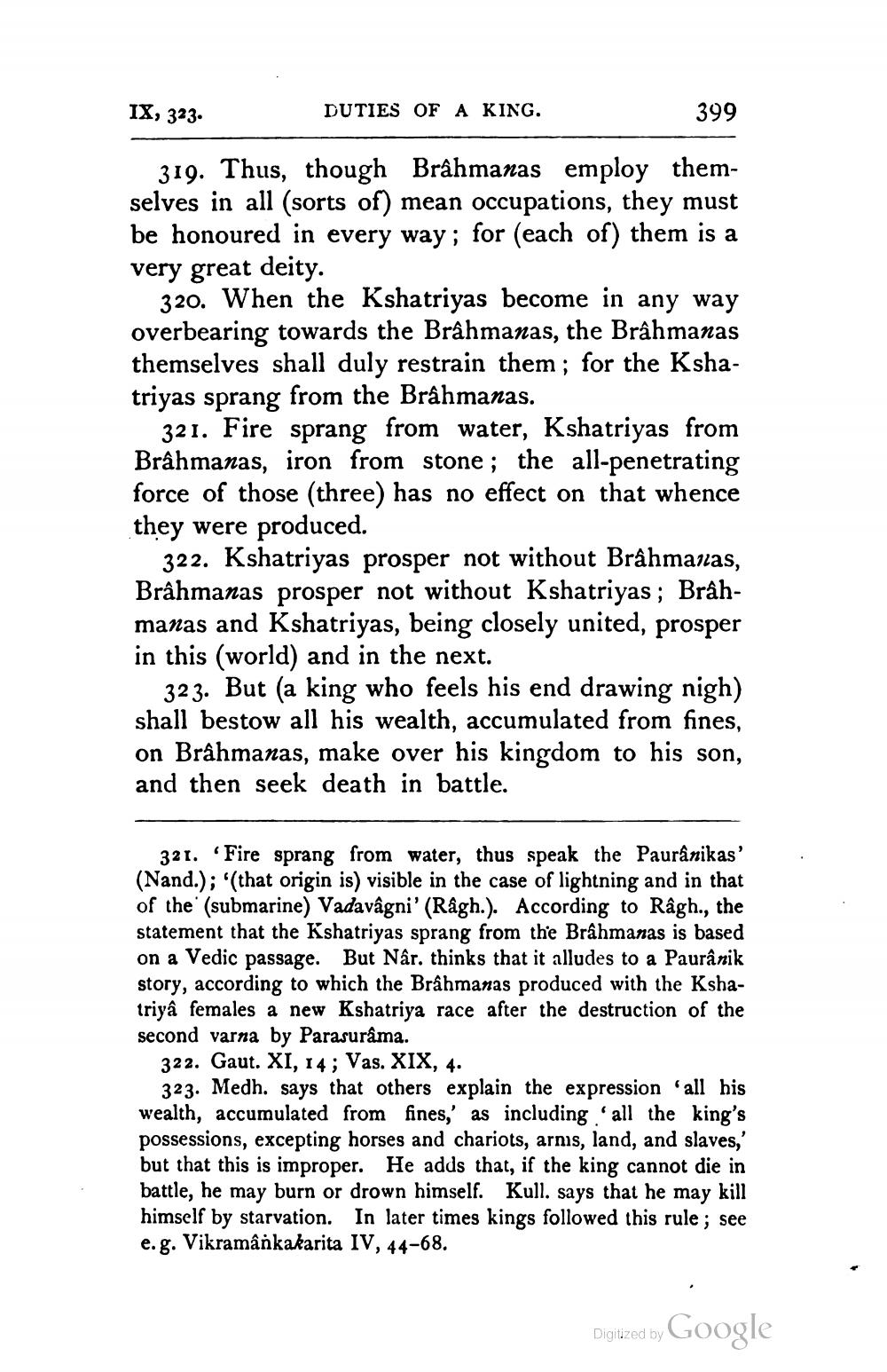________________
IX, 323.
DUTIES OF A KING.
399
319. Thus, though Brâhmanas employ themselves in all (sorts of) mean occupations, they must be honoured in every way; for (each of) them is a very great deity.
320. When the Kshatriyas become in any way overbearing towards the Brâhmanas, the Brâhmanas themselves shall duly restrain them; for the Kshatriyas sprang from the Brâhmanas.
321. Fire sprang from water, Kshatriyas from Brâhmanas, iron from stone; the all-penetrating force of those (three) has no effect on that whence they were produced.
322. Kshatriyas prosper not without Brahmanas, Brâhmanas prosper not without Kshatriyas ; Brâhmanas and Kshatriyas, being closely united, prosper in this (world) and in the next.
323. But (a king who feels his end drawing nigh) shall bestow all his wealth, accumulated from fines, on Brâhmanas, make over his kingdom to his son, and then seek death in battle.
321. 'Fire sprang from water, thus speak the Paurânikas' (Nand.); '(that origin is) visible in the case of lightning and in that of the (submarine) Vadavâgni' (Ragh.). According to Râgh., the statement that the Kshatriyas sprang from the Brahmanas is based on a Vedic passage. But Nâr. thinks that it alludes to a Paurânik story, according to which the Brahmanas produced with the Kshatriyâ females a new Kshatriya race after the destruction of the second varna by Parasurama.
322. Gaut. XI, 14; Vas. XIX, 4.
323. Medh. says that others explain the expression all his wealth, accumulated from fines,' as including all the king's possessions, excepting horses and chariots, arnis, land, and slaves,' but that this is improper. He adds that, if the king cannot die in battle, he may burn or drown himself. Kull. says that he may kill himself by starvation. In later times kings followed this rule ; see e.g. Vikramankakarita IV, 44-68.
Digitized by Google




